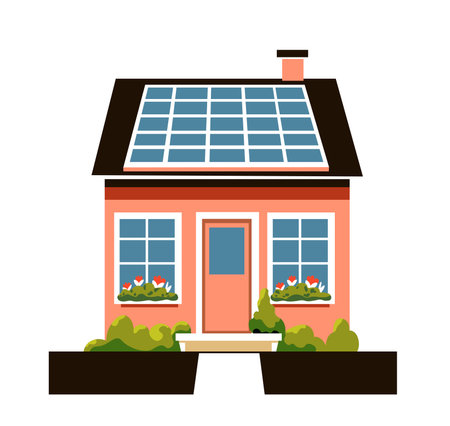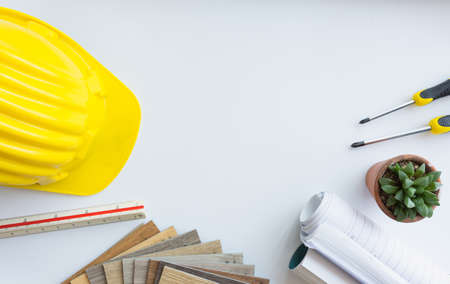Introduction to Eco-Friendly Renovations in the UK
Across Britain, there is a notable shift towards eco-friendly home improvements, particularly in kitchen and bathroom renovations. This movement is driven by both environmental responsibility and practical benefits for homeowners. As awareness of climate change intensifies, British households are increasingly seeking sustainable solutions that reduce carbon footprints and promote healthier living environments. The renovation sector has responded with innovative products and materials tailored to the UK market, supporting government initiatives like the Net Zero Strategy and reflecting a broader cultural embrace of sustainability.
The Rise in Demand for Sustainable Renovations
UK homeowners are motivated by multiple factors: reducing energy costs, increasing property value, and minimising environmental impact. The demand for green renovations is not limited to new builds; period properties and traditional British homes are also being updated with sustainable technologies and materials. This trend aligns with the national ethos of conservation and stewardship of historic buildings, ensuring that modernisation does not come at the expense of heritage or the environment.
Benefits to Homeowners and the Planet
| Benefit | Homeowner Impact | Environmental Impact |
|---|---|---|
| Lower Energy Bills | Reduced utility costs through efficient appliances and insulation | Decreased overall energy consumption nationwide |
| Improved Indoor Air Quality | Healthier living spaces due to low-VOC materials | Less pollution released during manufacturing and use |
| Enhanced Property Value | Increased appeal for future buyers prioritising sustainability | Supports market demand for eco-conscious developments |
A Responsible Approach to Modern Living
The transition towards sustainable kitchens and bathrooms is no longer a niche consideration in Britain; it is becoming an industry standard. By choosing environmentally friendly materials and practices, UK residents contribute to global efforts against climate change while enjoying tangible advantages at home. In this article, we will explore how British homeowners can effectively integrate sustainable choices into their kitchen and bathroom renovations, with guidance on selecting the right materials and solutions for long-term benefit.
2. Selecting Sustainable Materials: What’s Available in the British Market
When renovating kitchens and bathrooms with sustainability in mind, UK homeowners have a wealth of eco-friendly material options. These choices not only support environmental responsibility but also align with contemporary British design sensibilities. Below, we explore some of the most popular sustainable materials available across the UK market.
Recycled Surfaces
One of the leading trends is the use of recycled materials for worktops, splashbacks, and tiling. Recycled glass surfaces, for example, combine post-consumer glass fragments into sleek and durable countertops, ideal for both kitchens and bathrooms. Similarly, composite worktops made from recycled stone or porcelain offer high performance and unique visual appeal.
| Material Type | Eco Credentials | Typical Applications |
|---|---|---|
| Recycled Glass | Reduces landfill waste, low energy manufacturing | Worktops, Splashbacks |
| Recycled Stone/Porcelain Composite | Repurposes industrial waste, long lifespan | Countertops, Tiles |
| Bamboo Composite | Rapidly renewable, minimal pesticides | Cabinetry, Flooring |
Responsibly Sourced Timber
The British market offers a range of timber products certified by the Forest Stewardship Council (FSC) or Programme for the Endorsement of Forest Certification (PEFC). Choosing responsibly sourced oak, ash or even fast-growing bamboo ensures your renovation supports sustainable forestry. Solid wood worktops and cabinetry not only offer longevity but also timeless British style.
Key Considerations When Choosing Timber:
- Look for FSC or PEFC certification labels.
- Prioritise locally grown species to reduce transport emissions.
- Opt for finishes using natural oils or water-based varnishes over solvent-based alternatives.
Locally Produced Products
Sourcing materials produced within the UK supports local economies while reducing the carbon footprint associated with transportation. Many British manufacturers now offer ceramic tiles, brassware, and even eco-friendly paints made from natural minerals or plant-based ingredients. Supporting local brands can also streamline installation and after-sales service due to proximity.
| Product Category | British Supplier Example |
|---|---|
| Ceramic Tiles | BCT British Ceramic Tile |
| Basin & Tapware | Perrin & Rowe |
| Naturally Derived Paints | Lakeland Paints, Earthborn Paints |
Sustainable Material Selection Checklist:
- Select recycled or upcycled surfaces where possible.
- Ensure all timber is responsibly sourced and certified.
- Choose locally manufactured products to minimise transport impact.
- Avoid materials containing high levels of VOCs (volatile organic compounds).
- Consult with your supplier about end-of-life recyclability or take-back schemes.
Sustainable renovations in Britain are increasingly straightforward thanks to a mature market of eco-friendly suppliers. By making informed choices on surfaces, timber, and locally produced goods, you can create a kitchen or bathroom that’s both stylish and environmentally responsible.

3. Water and Energy Efficiency in British Homes
In the context of eco-friendly kitchen and bathroom renovations across the UK, enhancing water and energy efficiency is fundamental to achieving sustainability goals. By integrating advanced appliances, fixtures, and technologies that align with British regulations and standards, homeowners can significantly reduce their environmental impact while also benefiting from cost savings.
Guidance for Selecting Efficient Appliances and Fixtures
When upgrading kitchens and bathrooms, it is essential to opt for products bearing recognised certifications such as the Water Label or Energy Saving Trust Recommended label. These assure compliance with UK standards for efficiency, durability, and performance. Below is a summary of key considerations:
| Category | Recommendation | Relevant Standard/Label |
|---|---|---|
| Kitchens – Dishwashers & Washing Machines | Select A-rated models with eco-programmes and load sensors | Energy Label (UK), Energy Saving Trust Recommended |
| Kitchens – Taps | Install aerated or flow-restricted taps to minimise water use | Unified Water Label, WRAS Approved Product |
| Bathrooms – Toilets | Dual-flush toilets with reduced flush volumes (4/2.6 litres) | Unified Water Label, British Standard BS EN 997 |
| Bathrooms – Showers | Low-flow showerheads (8 litres/minute or less) | Unified Water Label, WRAS Approved Product |
| General – Lighting & Heating | LED lighting; install thermostatic radiator valves or smart controls | Energy Saving Trust Endorsed Products, BEAMA Compliance Mark |
The Role of Smart Technologies in Sustainable Renovations
The adoption of smart home technologies enables more precise control over water and energy usage. For instance, installing smart thermostats or leak detection systems can optimise heating schedules and prevent water wastage—crucial steps towards reducing household consumption.
Legal Compliance and Building Regulations in the UK
All renovations must comply with relevant parts of the UK Building Regulations, particularly Part G (Sanitation, Hot Water Safety and Water Efficiency) and Part L (Conservation of Fuel and Power). Ensuring products are WRAS approved or meet British Standards not only aids legal compliance but also secures eligibility for possible grants or incentives aimed at eco-friendly upgrades.
Practical Steps for Homeowners and Developers
- Prioritise appliances and fixtures with high efficiency ratings during specification stages.
- Work with certified installers familiar with UK regulatory requirements.
- Consider whole-system solutions (such as rainwater harvesting) to further decrease mains water reliance.
4. Local Regulations and Certification Standards
When undertaking eco-friendly kitchen and bathroom renovations in the UK, it is essential to ensure full compliance with British regulations, building codes, and environmental certification standards. Understanding these requirements not only guarantees legal adherence but also demonstrates a commitment to sustainable practices within your project.
Key British Building Regulations
The following table outlines some of the primary regulations and codes relevant to sustainable renovations:
| Regulation/Code | Description | Relevance to Eco-Friendly Renovations |
|---|---|---|
| Part L – Conservation of Fuel and Power (Building Regulations 2010) | Governs energy efficiency requirements for buildings | Mandates insulation, efficient glazing, and heating systems for reduced energy consumption |
| BREEAM (Building Research Establishment Environmental Assessment Method) | Recognised sustainability assessment method for buildings | Benchmarks environmental performance; can add value and credibility to renovation projects |
| WRAS (Water Regulations Advisory Scheme) | Certifies products that comply with UK water supply regulations | Ensures water-saving fixtures are compliant and safe for use |
Environmental Certifications and Labels
Sourcing sustainable materials should be supported by recognised certifications. Commonly used labels in the UK include:
- FSC® (Forest Stewardship Council): Verifies timber products originate from responsibly managed forests.
- PEFC™ (Programme for the Endorsement of Forest Certification): Ensures forest-based materials are sustainably sourced.
- Ecolabel: The EU Ecolabel certifies products meeting high environmental standards throughout their lifecycle.
The Role of Local Authorities and Professional Advice
Before commencing any renovation work, it is advisable to consult with local planning authorities or a qualified legal advisor. They can provide guidance on obtaining necessary permissions, ensuring all work aligns with local policies on heritage conservation or sustainability mandates.
Conclusion: Due Diligence Is Key
Navigating the regulatory landscape is vital for anyone aiming to deliver responsible, sustainable kitchens and bathrooms in Britain. By adhering to local regulations and selecting certified materials, homeowners and professionals alike uphold both legal obligations and best practices in environmental stewardship.
5. Partnering with Sustainable Suppliers and Professionals
When renovating kitchens and bathrooms with eco-friendly ambitions in the UK, a crucial step is selecting the right local suppliers and professionals who champion sustainable practices. Choosing ethical partners not only ensures access to high-quality, responsibly sourced materials but also helps uphold environmental standards throughout your renovation project.
How to Identify Ethical Suppliers
Look for suppliers that provide full transparency regarding their material sourcing, possess recognised eco-certifications (such as FSC, PEFC, or Cradle to Cradle), and demonstrate a clear commitment to reducing waste and carbon emissions. It’s also important to favour British-based suppliers where possible, supporting local economies and reducing transportation impact.
| Criteria | What to Look For | Questions to Ask |
|---|---|---|
| Sourcing Transparency | Clear supply chains & origin of materials | “Can you provide provenance details for your products?” |
| Certifications | FSC, PEFC, Cradle to Cradle, BREEAM ratings | “Which sustainability accreditations do you hold?” |
| Waste Management | Recycling schemes & low-waste operations | “How do you manage offcuts and packaging waste?” |
| Local Sourcing | UK-grown timber, British-made fixtures/fittings | “Are your materials and products sourced within the UK?” |
Selecting Renovation Specialists Aligned with Best Practices
A reputable renovation specialist should be well-versed in sustainable building standards such as BREEAM or Passivhaus, and actively recommend eco-friendly solutions tailored to British homes. When consulting with tradespeople or design professionals:
- Request case studies of previous sustainable projects.
- Ask about their familiarity with low-impact installation methods.
- Ensure they prioritise energy efficiency, water-saving technologies, and circular economy principles.
- Seek references from past clients who undertook green renovations.
Benefits of Local Collaboration
By working closely with local suppliers and trusted specialists across the UK, homeowners can achieve higher sustainability standards while enjoying responsive service and a reduced environmental footprint. This collaborative approach not only elevates the quality of your kitchen or bathroom but also contributes positively to Britain’s broader green goals.
6. Case Studies: Successful Eco-Friendly Renovations in Britain
Recent years have seen an upsurge in British homeowners opting for kitchen and bathroom renovations that champion sustainability without compromising on style or functionality. To provide practical insights, below are several case studies highlighting projects across the UK where eco-friendly principles and materials were at the core of design decisions.
Case Study 1: Victorian Terrace Kitchen in London
A homeowner in North London transformed a dated Victorian terrace kitchen by selecting recycled glass worktops, FSC-certified oak cabinetry, and energy-efficient appliances with high EU energy ratings. The renovation also included LED lighting throughout and a water-saving tap system. The result is a space that blends period charm with contemporary sustainability.
Key Features
| Feature | Sustainable Choice |
|---|---|
| Worktops | Recycled glass composite |
| Cabinetry | FSC-certified solid oak |
| Appliances | A++ rated fridge and dishwasher |
| Lighting | LED fixtures |
Case Study 2: Family Bathroom in Edinburgh
This project focused on minimising environmental impact through careful material selection and water conservation. The clients chose locally quarried stone tiles, bamboo flooring (a rapidly renewable resource), and installed low-flush toilets alongside aerated taps. Recycled aluminium was used for fixtures, reducing both embedded carbon and waste.
Key Features
| Feature | Sustainable Choice |
|---|---|
| Flooring | Bamboo (FSC certified) |
| Tiling | Locally sourced stone |
| Toilet & Taps | Low-flow, aerated models |
| Fixtures | Recycled aluminium |
Case Study 3: Coastal Cottage Retrofit in Cornwall
The owners of this Cornish cottage renovated their bathroom and kitchen using reclaimed timber for shelving and worktops, while opting for eco-paints with low VOC emissions to improve indoor air quality. Rainwater harvesting systems were introduced for toilet flushing, demonstrating innovation in sustainable water use.
Main Sustainable Interventions
- Reclaimed timber for surfaces and storage units
- Natural clay-based paints with minimal chemical content
- Rainwater harvesting integration for non-potable uses
Lessons Learned from These Projects
- Sourcing local or recycled materials can significantly reduce the carbon footprint of home renovations.
- Eco-conscious design does not necessitate sacrificing aesthetic appeal; bespoke solutions can enhance property value.
- Water-saving technologies are increasingly accessible in the UK market, supporting conservation goals without compromising performance.
Together, these case studies demonstrate that integrating sustainable materials and innovative eco-designs is not only feasible within British homes but also offers tangible benefits—environmental, economic, and personal wellbeing alike.


